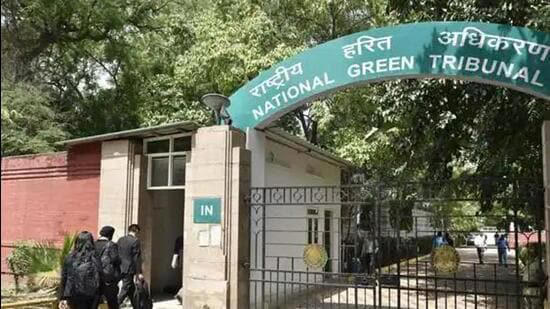The National Green Tribunal (NGT) has sought clarification from the Assam government regarding the existence of schools and tea gardens within forest land in the state. This revelation has brought to the forefront the delicate balance between development initiatives and environmental preservation in regions rich in biodiversity.
The NGT’s intervention comes in response to a petition highlighting the encroachment of forest land for non-forest activities, including the establishment of educational institutions and tea plantations. The presence of such infrastructure within protected forest areas raises serious questions about land use policies, environmental impact assessments, and the enforcement of regulations aimed at safeguarding ecologically sensitive zones.
At the heart of the matter lies the conflict between economic development and conservation efforts. Assam, known for its lush greenery and diverse wildlife, has long grappled with the challenge of striking a harmonious balance between human activities and the preservation of its natural resources. While initiatives like tea cultivation and educational institutions contribute to the socio-economic development of the region, their encroachment upon forest land poses a threat to the fragile ecosystems that sustain life.
The discovery of schools within forest land underscores the importance of ensuring access to education while respecting ecological boundaries. While education is undoubtedly a fundamental right, the establishment of schools within protected areas raises concerns about the potential disruption of wildlife habitats, deforestation, and habitat fragmentation. It calls for a nuanced approach that prioritizes the educational needs of communities while safeguarding the ecological integrity of forest ecosystems.
Similarly, the presence of tea gardens within forest land highlights the complex interplay between economic interests and environmental conservation. Tea cultivation is a vital component of Assam’s economy, providing employment opportunities and contributing significantly to the state’s revenue. However, the expansion of tea estates into forested areas can have far-reaching consequences, including habitat loss, soil erosion, and biodiversity depletion. It underscores the need for sustainable land management practices that balance agricultural productivity with ecological resilience.
The NGT’s directive to the Assam government signifies a crucial step towards addressing the underlying issues of encroachment and land use violations. It sends a clear message that environmental laws and regulations must be upheld, and those responsible for unauthorized activities within forest land will be held accountable. Moreover, it underscores the importance of strengthening monitoring mechanisms, enhancing public awareness, and fostering community participation in conservation efforts.
Moving forward, it is imperative for the Assam government to respond promptly to the NGT’s queries and take proactive measures to rectify the situation. This includes conducting comprehensive surveys to identify encroachments, demarcating forest boundaries, and implementing corrective measures to restore degraded ecosystems. Additionally, efforts should be made to engage with local communities, promote sustainable livelihoods, and foster a culture of environmental stewardship.
The NGT’s intervention serves as a wake-up call for all stakeholders to reevaluate their approach towards land use and development in ecologically sensitive areas. It underscores the need for a holistic and inclusive strategy that prioritizes environmental sustainability, social equity, and economic prosperity. By working collaboratively towards these shared goals, Assam can pave the way for a more harmonious coexistence between human communities and the natural world.
In addition, the NGT’s scrutiny of schools and tea gardens within forest land in Assam highlights the complex challenges facing environmental conservation in the region. It underscores the importance of upholding environmental laws, promoting sustainable development practices, and safeguarding the invaluable natural heritage of the state. As Assam navigates the delicate balance between progress and preservation, it must prioritize the long-term well-being of both its people and its planet.


